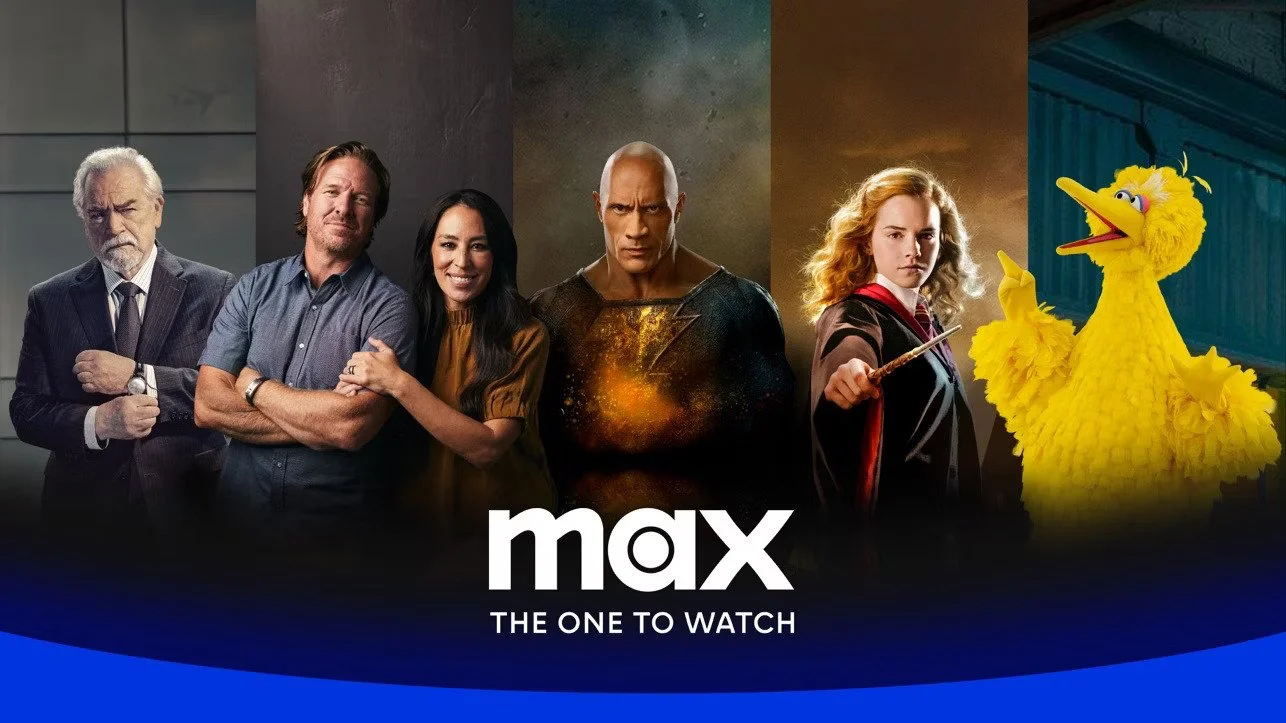
Warner Bros. Discovery
Case Study | Sports Strategy
Summer 2023
The SVOD union of HBO Max and Discovery Plus to simply Max, merges what seems like two mutually exclusive demographics under one roof. But I believe cross pollination and engagement will ensue because the qualities of each network and the types of entertainment each are known for are actually complimentary. The quick take is that the HBO audience spends less time on the service but is fervently loyal to HBO's prestige programming and array of critically acclaimed films. In the other camp, the Discovery Plus audience enjoys the domestically-focused and reality-based programming that serves as more passive entertainment; shows one can decompress and binge-watch after a long day or week, or as something enjoyable to have on, regardless of episodic order, in tandem with cooking and doing laundry.
While there certainly are sub-groups of each service that demographically don't coexist, I believe there is actually a greater likelihood, and thus opportunity, that the unique qualities of HBO Max and Discovery Plus are not oil and water but rather complimentary (oil and vinegar?) and can and will serve the more multi-faceted viewers we all actually are. In fact, HBO's introduction of Max Originals in 2020 initiated this "complimentary" strategy, pairing its long and respected history of headier social commentary based dramas like Succession and The Wire, with lighter comedic-dramas like Hacks and The Flight Attendant. Hacks and The Flight Attendant retained the identity of HBO with quality storytelling, great performances, garnering critical acclaim just like their siblings, but their lighter quality provided HBO Max subscribers with balance - excellent lighter entertainment to compliment the always excellent psycho-analytical, often violent, and "I need to process what just happened" quality what was core HBO programming.
Max is Entertainment for All
Distilled, HBO is entertainment, and the objective of entertainment is to illicit or fulfill emotions across a spectrum of human situations and conditions. Sometimes we need jarringly thought-provoking to expand and learn. Other times we want to connect with and root for real people. Sometimes we just need a good laugh or cry. And sometimes we just want to escape into a spectacular world. Analyzing and developing clear cut target audiences can be a too cut and dry way to look at strategy, as if a subscriber will only or will always be one-dimensional. Someone who loves Succession can and could very well enjoy 90 Day Fiancé. And someone who loves Alone can and could enjoy Band of Brothers. I see Max as entertainment for all our current and developing facets and interests.
Sports on Max
Which leads me to sports. In evaluating the live sports landscape (Figure 1), there are two key opportunities that very much align with the aforementioned approach of complimentary and multi-faceted. Moreover, the permanence of streaming, cemented and fortified by the pandemic, in addition to new players from the tech industry, is rapidly fragmenting and upending what once was, live sports oriented by networks — then bundled and packaged by cable and satellite carriers. Recent seismic moves made by tech giants securing parts of NFL broadcast rights — Amazon Prime Video's 11-year-deal for Thursday Night Football and YouTube TV's 7-year-deal for Sunday Ticket — are such game changing plays that they demand all players in the field to reevaluate and reenvision their position in sports.
David Zaslav NEEDS the NBA
TNT has been the home of NBA on TNT, broadcasting the NBA Playoffs since 1988. Despite of the fact that CEO David Zaslav has shared "We don't need the NBA", I think it would be prudent to not only extend the current contract that ends in the 2024-2025 season, but more critically to explore streaming rights with the NBA, so that NBA on TNT can fold under Max. This strategy would effectively make NBA on TNT independently available on SVOD, generating a win-win by:
Giving fans an alternative way to access NBA on TNT, without having to subscribe to one of the vMVPDs (YouTube TV, Sling TV, DirecTV Stream, Hulu + Live TV), which would also subsequently provide WBD with a greater edge against, as well as reduce reliance, on the vMVPDs.
Contribute to Max's stickiness and overall time spent metric.
Provide coveted added value to existing Max subscribers — like myself, who would be thrilled.
From a competitive purview, retaining and amplifying exclusivity of the NBA Playoffs is also vital because without it, WBD would lose footing as a contender in the Big Four: NFL, MLB, NBA, and NHL, popularity listed respectively. Leaving WBD with only one exclusive — the recently signed 8-year-deal with the U.S. Soccer Federation, which in my opinion, is a long play for WBD since soccer is still actively growing in popularity, but also in the greater scheme of competitive edge, far less important than fighting for the NBA Playoffs - who have mega established Big Four cultural cache. After all, ABC/ESPN/Disney has exclusivity to championship games, both the NBA and Stanley Cup. With WBD sharing broadcast rights of the Stanley Cup Playoffs with Disney. WBD's MLB Post Season contract is also nonexclusive.
2023 NBA Finals were broadcast on ABC, and presented by YouTubeTV
Disney owns 100% of BamTech and the MLB is wholly self-sufficient with MLB.tv
Tech giants YouTube/Google and Amazon have expansive and reliable revenue streams elsewhere in their ecosystem for them to put stakes in NFL streaming rights without imminent profitability concerns — both tech giants can afford to use time to their advantage — allowing consumers time to acclimate to the technical, behavioral, and perception shift necessary to establish YouTube and Amazon as household names in sports broadcasting. The same goes for Apple, who also has abundant coffers for experimentation and testing without deadly financial repercussions. My prediction is Apple forgoes Friday Night Baseball, after testing the waters for two years, because what's the value in just having a nominal slice of MLB broadcasting when the MLB has established MLB.tv where fans can stream every single game for $24.99/month. To note, and as we know, the backend of MLB.tv was built in-house under MLB Advanced Media in the early 2000s - lightyears before competitors were even thinking of streaming as a key strategy. The streaming technology was so successful it spun out independently as BAMTech, which Disney gained majority stake in to launch Disney+, and as of Nov 2022 own 100% of. Suffice to say, the MLB is so self-sufficient they don't need Apple as either a distributor or technology partner, and open to sharing a piece if the price is right. Which is why it was sensible for Apple to place a stake for a 10-year-commitment with Major League Soccer, a league with both growing global appeal, and domestic popularity closing in on the #4 NHL. Furthermore, MLS serves as a compliment to Apple TV+'s popular show Ted Lasso.
The second key sports play, and strong opportunity for WBD, is becoming the home of auto-racing, both domestically and globally, by bidding for Nascar, Indy500, and F1. Nascar's contract with NBC and Fox ends in 2024 ($8.2B | 2015-2024), with tentpole races like the Daytona 500 also expiring (Fox 2007-2023). Indy500's deal with NBC ends in 2024. Nascar and Indy500 have an natural affinity with Discovery Plus' core audience. The addition of F1 to WBD broadens appeal to a greater global appeal, and leverages growing domestic interest in F1, catalyzed by Netflix's Drive to Survive docuseries. Timing is also opportune as F1's deal with ABC-ESPN-Disney ends in 2025, where I can see ABC-ESPN-Disney willing to part ways with F1 given their dominant championships stake in tennis, basketball, and hockey. Retaining NBA on TNT and giving it more life on streaming — independent of cable and satellite carriers, plus acquiring exclusive rights to Nascar, Indy500, and F1, where Nascar and Indy500 demos reach the male counterparts to Discovery Plus' existing more female-leaning audience, and utilizing F1 to attract a more global audience plus its increasing domestic popularity (thanks to Netflix's Drive to Survive docuseries), gives WBD a powerful and firm position as a must-have streaming service that subscribers view as a utility.
WBD’s Sports Play =
This strategy also reaffirms the tiering that has already started happening in the eyes of consumers where to manage the tidal wave of streaming services and vast seas of content, consumers are not subscribing to some services all year, choosing to cycle on and off of monthly subscriptions in line with the one or two shows they want to watch. And to bring it all back around, the following are also key considerations that led to the aforementioned strategy:
MLB isn't worth fighting for — they run their own show and not even Apple can take them on.
The NFL is a tech showdown where price for entry is far too high to even consider.
Paramount-CBS has a hold on golf, having had a long history with the PGA and Masters Championships.
Making a play for soccer and tennis isn't worth it at this juncture with competitors having secured coveted pieces that they will likely hold onto:
Peacock-NBCUComcast has the Premier League through 2027, the U.S. Open (starting in 2026 after 11 years with ESPN), and the Olympics on lockdown through 2032.
Fox Corporation has the 2026 World Cup, and the World Series, which it will likely extend or renew its current 1995 to 2028 contract.
Apple recently secured Major League Soccer for 11 years.
ABC-ESPN-Disney has Wimbledon though 2035.












